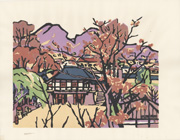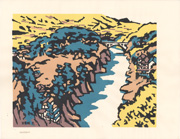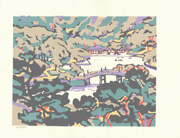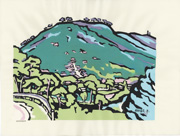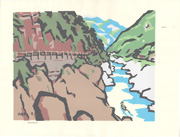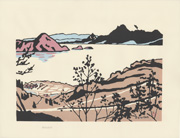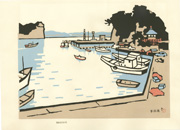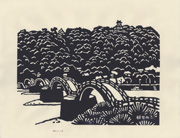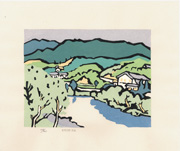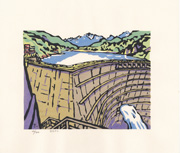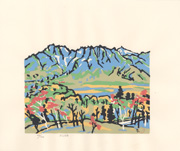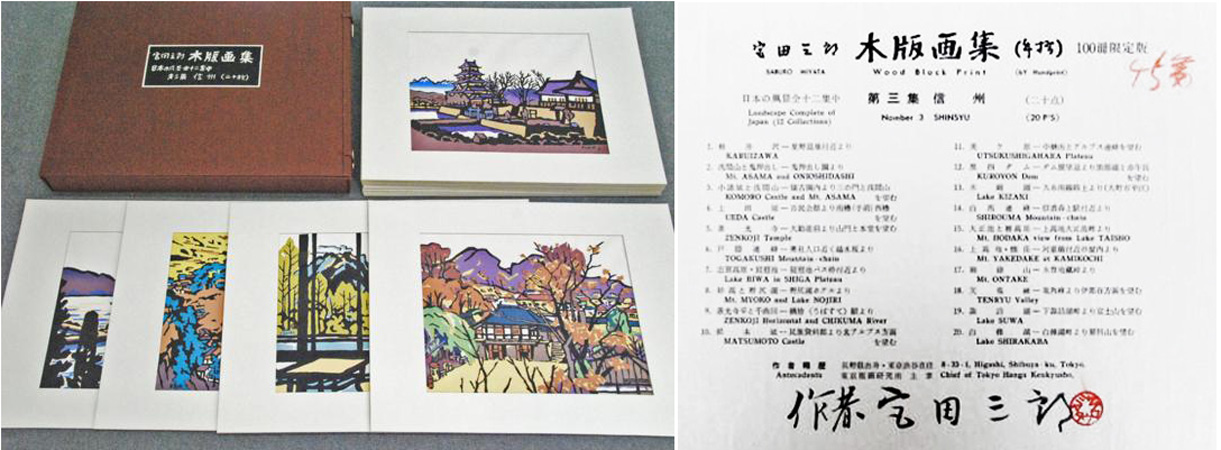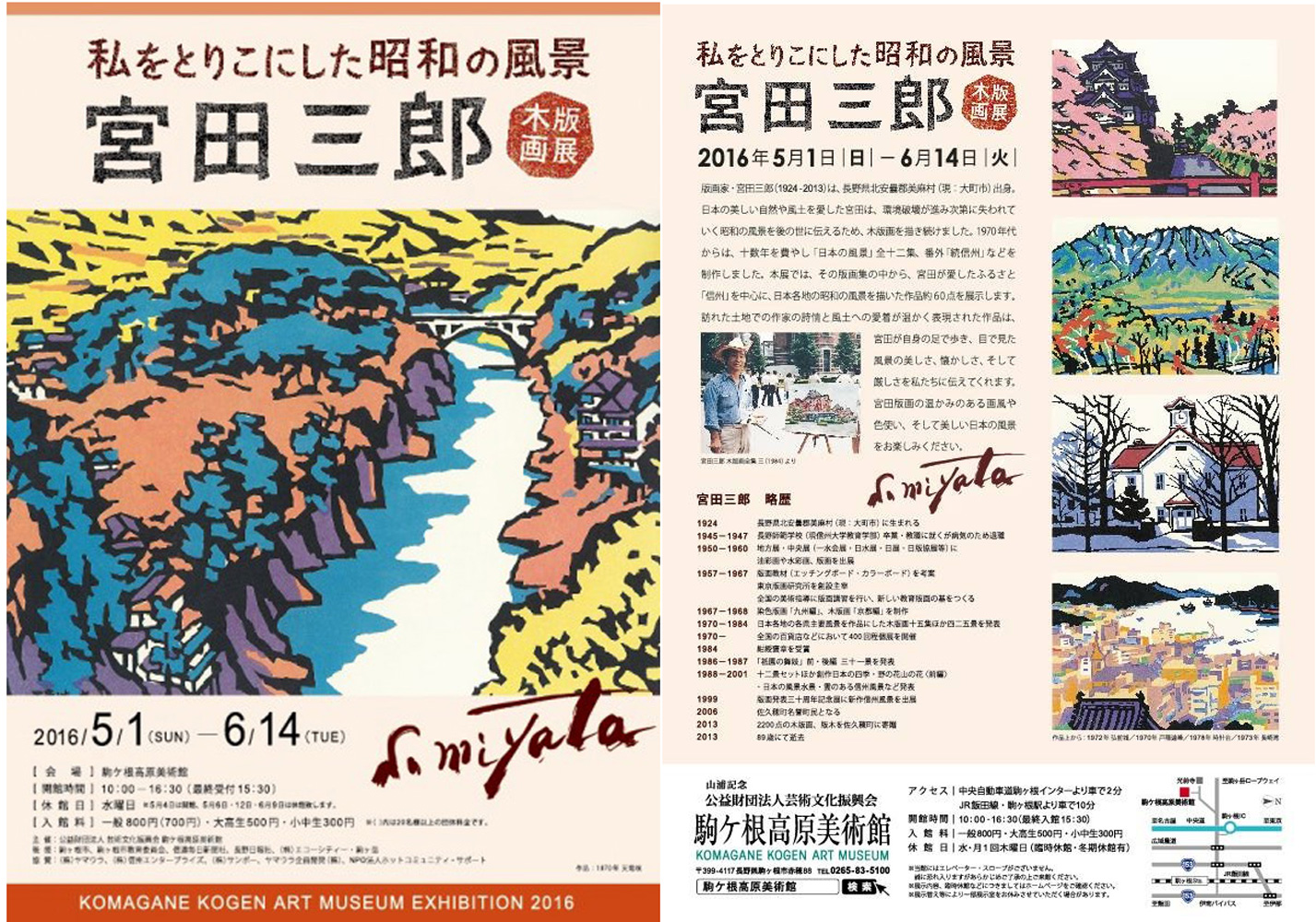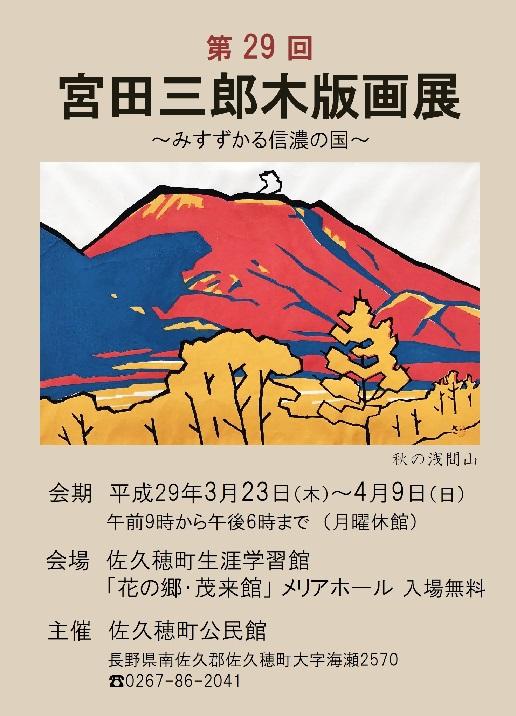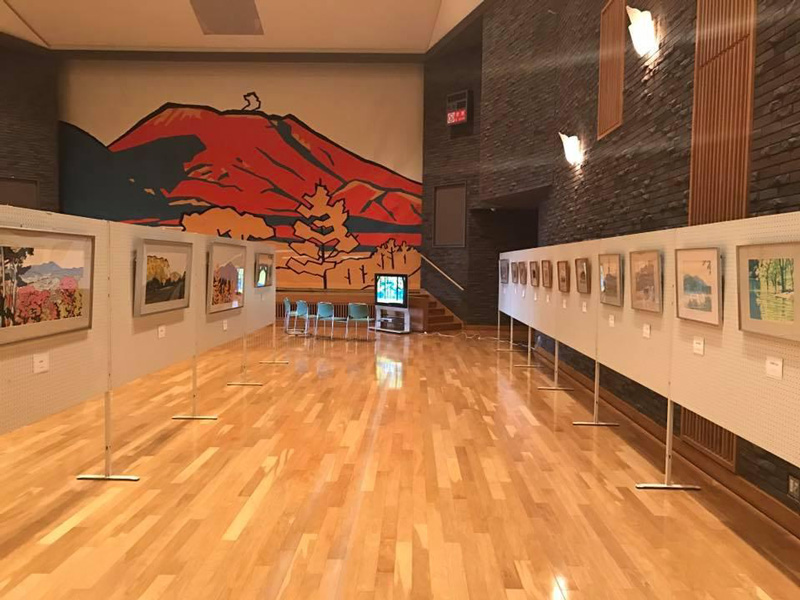Prints in Collection
Shiga Kōgen Hasuike, c. 1971-1984
IHL Cat. #2296
Kuroyon (Kurobe) Dam, c. 1971-1984
IHL Cat. #2298
Togakushi Mountain Range, c. 1971-1984
IHL Cat. #2297
Biographical Data
Biography
Miyata Saburō 宮田三郎 (1924-2013)Sources: Guide to Modern Japanese Woodblock Prints: 1900-1975, Helen Merritt, University of Hawaii Press, 1992, p. 93; http://www.city.komoro.lg.jp/news-institution/2015070800076/; http://www.koumi-town.jp/museum/exhibition/miyata3.htm; https://www.town.sakuho.nagano.jp/kurashi/bunka/bunka/shogaigakushuka_984.html; 近代日本版 画家名 (1900-1945) [Artist Names: Modern Japanese Printmakers], Hanga-do, Tokyo http://www.hanga-do.com/img/Hangadomeiran107B.pdf
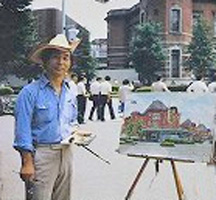
Miyata Saburō Mokuhanga shū Nihon no fūkei・Shinshū, Collection Number 3,1971
Miyata Saburō was born in 1924 (Taisho 13) in Miasa Village, Kitaazumi-gun, Nagano Prefecture, now Omachi City. After graduating from Nagano Prefecture’s normal school (a teachers’ college) in 1945, he worked as a teacher in Omachi until 1947, when he resigned due to illness. He moved to Tokyo following the war to work at his brother’s art supply store in Shibuya-ku. While working there he opened the Tokyo Hanga Institute, also referred to as the Tokyo Print Research Institute (Tokyo Hanga Kenkyūsho 東京版画研究所) to develop new materials for printmaking.
Over the years he exhibited his oil paintings and watercolors at Nitten Exhibitions (the successor to the government sponsored Teiten and Bunten exhibitions), Issuikai exhibitions (an organization of Western-style realist artists) and the Nihon Suisaigakai (Japan Watercolor Society). He exhibited his prints with the the Nihon Hanga Kyōkai (Japan Print Association), which he was also a member of, and in various international print exhibitions, including those held in Paris, Switzerland, São Paulo and Krakow.
From 1959 to 1962, Miyata suffered health problems and in 1962 a fire destroyed his atelier and home and he stopped creating or exhibiting any work. When he returned to printmaking he pursued a path independent of any art organizations.
In 1983-1984 the artist published a compendium of his work in five limited edition volumes titled Miyata Saburō mokuhanga zenshū 宮田三郎木版画全集 (The Complete Woodblock Prints of Miyata Saburō) and in 1984 he was awarded the Medal with Dark Blue Ribbon awarded by the Cabinet Office, Government of Japan.
In 2006 he was made an honorary citizen of Sakuho town (in Nagano Prefecture).
In 2016 and 2017 two exhibitions of his prints were held in his home prefecture featuring his landscape prints, the posters from which are reproduced below.
Miyata passed away on November 20, 2013 at the age of 89.
Komagane Kogen Art Museum “Miyata Saburo Woodblock Exhibition”, 2016
click on image to enlarge
Sakuho Town, Nagano Lifelong Learning Center
"The 29th Miyata Saburō Wooblock Exhibition", 2017
宮田三郎木版画展 みすずかる信濃の国
Miyata Saburō hangaten Misuzu karu Shinano no kuni
The Artist's Seal Present on All His Prints
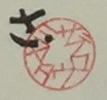
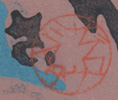
last revision:
6/25/2021
